Astronomy
-
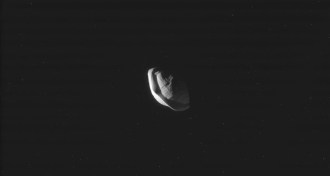 Astronomy
AstronomySaturn’s moon Pan looks like ravioli
Photographs taken this week by NASA’s Cassini spacecraft provide a closer view of Saturn’s small moon Pan, which resembles ravioli.
-
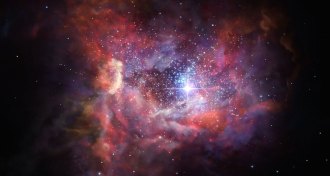 Astronomy
AstronomyAstronomers detect oldest known stardust in distant galaxy
The first stardust ever generated in the universe may have been spotted in a distant galaxy, seen as it was 600 million years after the Big Bang.
-
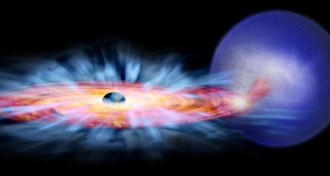 Astronomy
AstronomyMagnetism helps black holes blow off gas
The turbulent winds that swirl around black holes are probably driven by magnetic fields, scientists say.
-
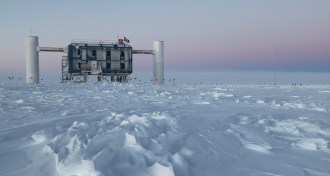 Particle Physics
Particle PhysicsRare triplet of high-energy neutrinos detected from an unknown source
The IceCube Neutrino Observatory spotted three neutrinos within 100 seconds that seem to have come from the same place in the sky.
-
 Particle Physics
Particle PhysicsTriplet of high-energy neutrinos detected from unknown source
The IceCube Neutrino Observatory spotted three neutrinos within 100 seconds that seem to have come from the same place in the sky.
-
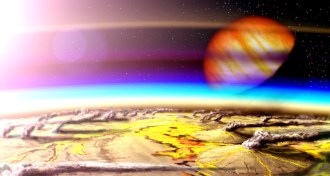 Astronomy
AstronomyHydrogen volcanoes might boost planets’ potential for life
Volcanoes that spew hydrogen could increase the number of potentially habitable planets in the universe.
-
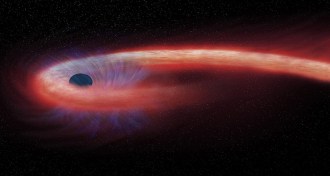 Astronomy
AstronomyBlack hole enjoys fantastically long stellar feast
A supermassive black hole about 1.8 billion light-years away has been gorging on the same star for a record-breaking decade.
-
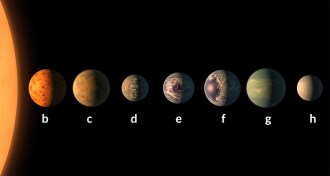 Astronomy
AstronomySeven Earth-sized planets orbit nearby supercool star
A planetary system called TRAPPIST-1 has seven Earth-sized planets, three in the habitable zone, researchers report.
-
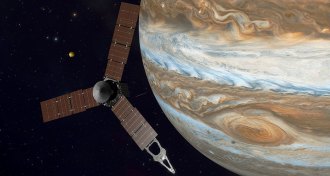 Planetary Science
Planetary ScienceJuno spacecraft won’t go into shorter orbit around Jupiter
Juno will remain in its 53-day orbit around Jupiter due to an issue with two helium check valves, NASA reports.
-
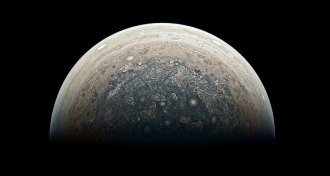 Astronomy
AstronomyCitizen scientists are providing stunning new views of Jupiter
A camera aboard NASA’s Juno spacecraft is giving citizen scientists a crack at discovering never-before-seen features of Jupiter.
-
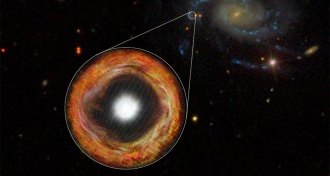 Astronomy
AstronomySupernova spotted shortly after explosion
Early observations of exploding star could indicate that stars become unstable as they near death.
-
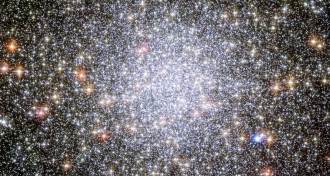 Astronomy
AstronomyMiddling black hole may be hiding in star cluster
A black hole with about 2,200 times the mass of the sun has been detected. If confirmed, it could represent a new type of gas-starved black holes and hint at how supermassive ones may form.